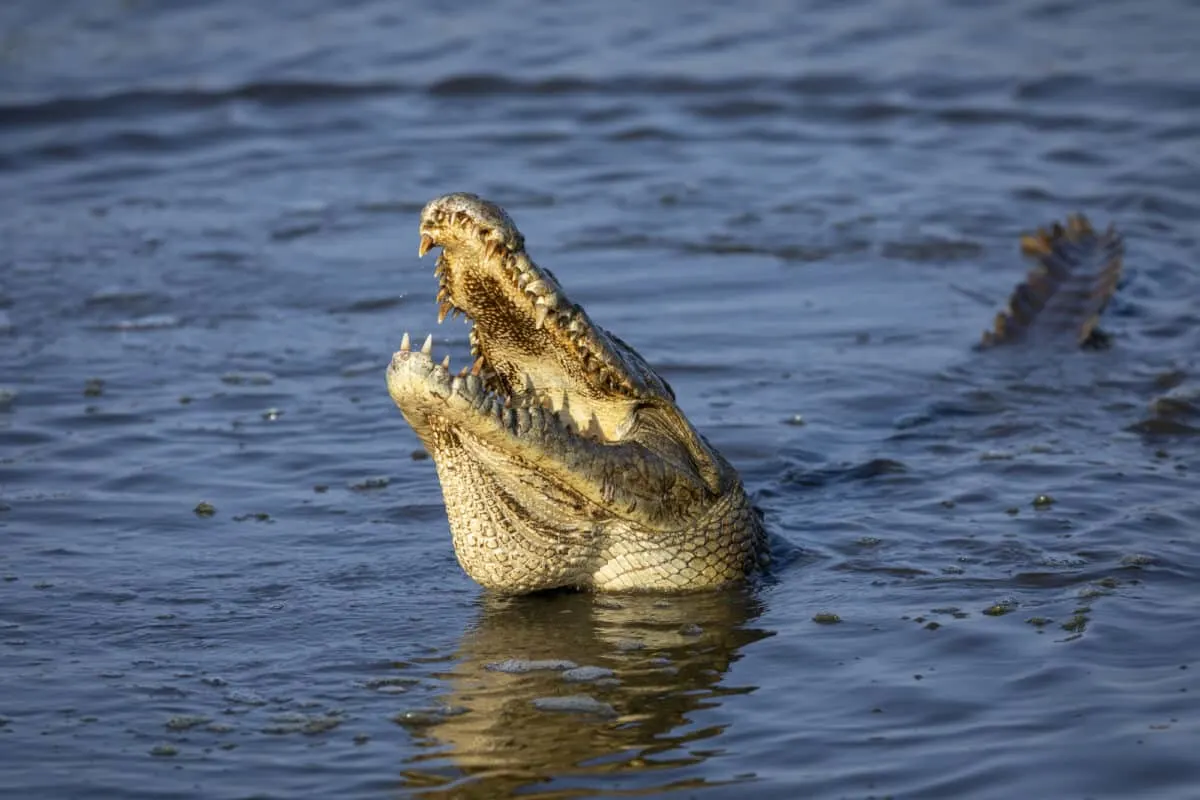Are you ready to hear the tale of how a man loses his arm following an alligator attack while urinating outside?
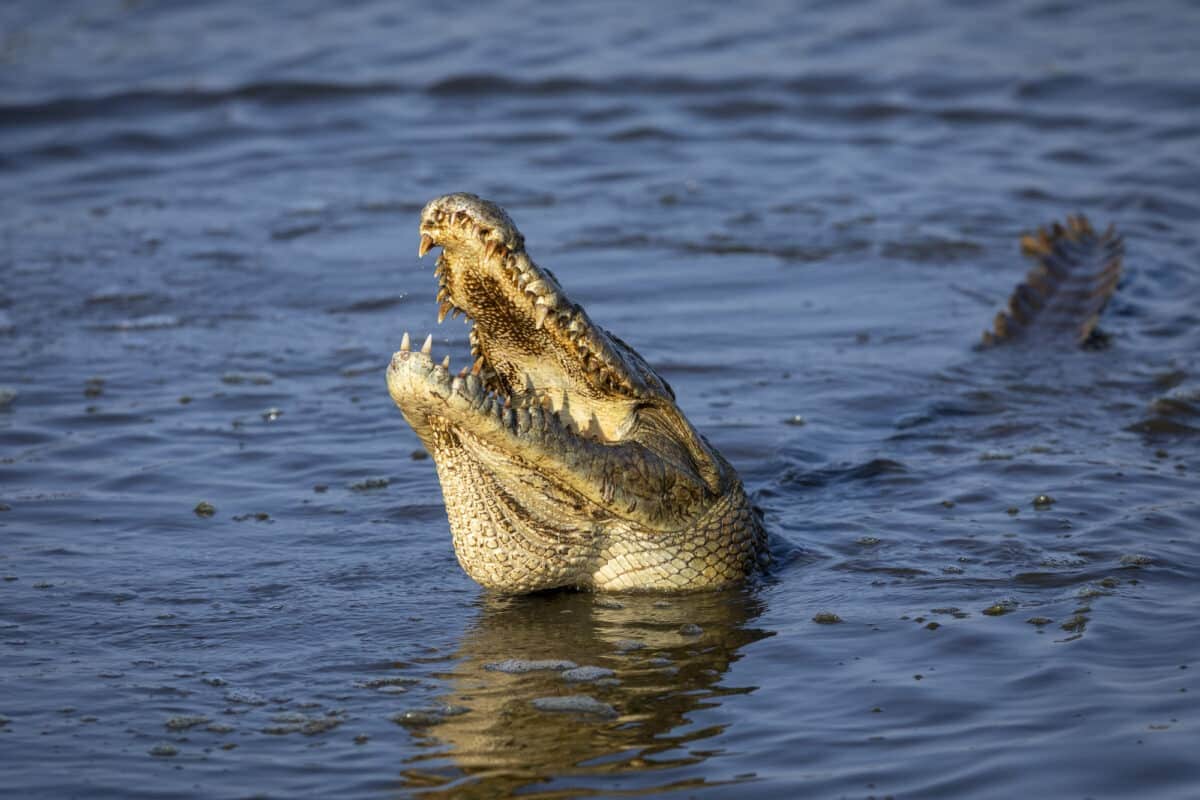
The American Alligator (Alligator mississippiensis) is a powerful predator native to the southeastern United States. These creatures can grow up to 14 feet in length and weigh up to 1,000 pounds, possessing formidable jaws lined with up to 80 razor-sharp teeth.
Although alligator attacks are not unheard of in the sunny state of Florida, they don’t cease to shock the population to its core. A recent incident, where a 23-year-old man fell victim to an alligator attack while urinating outside (and losing his arm as a result) serves as a reminder that these huge reptiles command respect and caution.
In this post we’ll give you a detailed account of this harrowing attack, and also shed some light on the statistics on alligator attacks in the state of Florida. Lastly, you’ll get to know the alligator a little bit better, a species which is just as terrifying as it’s impressive.
Key Points
- 23-year-old Jordan Rivera lost his right arm to a 10 ½ foot alligator in Port Charlotte, Florida
- Good Samaritans at the scene quickly applied a tourniquet to Rivera’s arm, controlling the blood loss until medical personnel arrived.
- The Florida Fish and Wildlife Commission successfully trapped and euthanized the alligator responsible for the attack
- Over a 100 alligator attacks have been recorded between 2000-2010.
- To avoid attacks, it’s crucial to maintain a safe distance from alligators, refrain from feeding them, avoid swimming in known alligator habitats.
The Incident

In the early hours of Sunday the 21st of May, Jordan Rivera, a 23-year-old Florida man, faced a grisly encounter with a colossal alligator, resulting in the loss of his right arm. Despite the gruesome incident, Rivera remains surprisingly positive, stating from his hospital bed “I didn’t lose my life, I lost an arm, it’s not the end of the world.”
Watch the interview with Rivera here.
The incident took place at a pond near a bar in Port Charlotte. Because the bar’s restroom queue seemed outrageously long, Rivera decided to go outside to relieve himself. Little did he know that spending a few minutes in a queue was a much better option than the gruesome experience that awaited.
Whilst going about his business, a misstep on unstable ground after urinating landed this man in the murky pond where the alligator attacked. Firemen and medical personnel arrived at the scene shortly before 2 a.m., luckily a group of good samaritans had already applied a tourniquet to Rivera’s injured arm. The medical team promptly airlifted the young man to Gulf Coast Medical Center in Fort Myers.
Florida Fish and Wildlife Commission trappers later located the 10 ½ foot alligator responsible for the attack, ultimately euthanizing it. Rivera, however, retains no memory of the actual incident – the only and last thing he remembers is falling into the water. His next memory is waking up in the hospital to the grim reality of his severe injury. He described his state upon waking as one of “confusion” upon seeing that he was missing an arm.
Rivera’s mother, Teresa Lessa, is indescribably grateful for her son’s survival. Lessa, along with Rivera, praised the bystanders for their swift response, dubbing them “angels” for their crucial role in saving her son’s life.
Statistics on Alligator Attacks in Florida
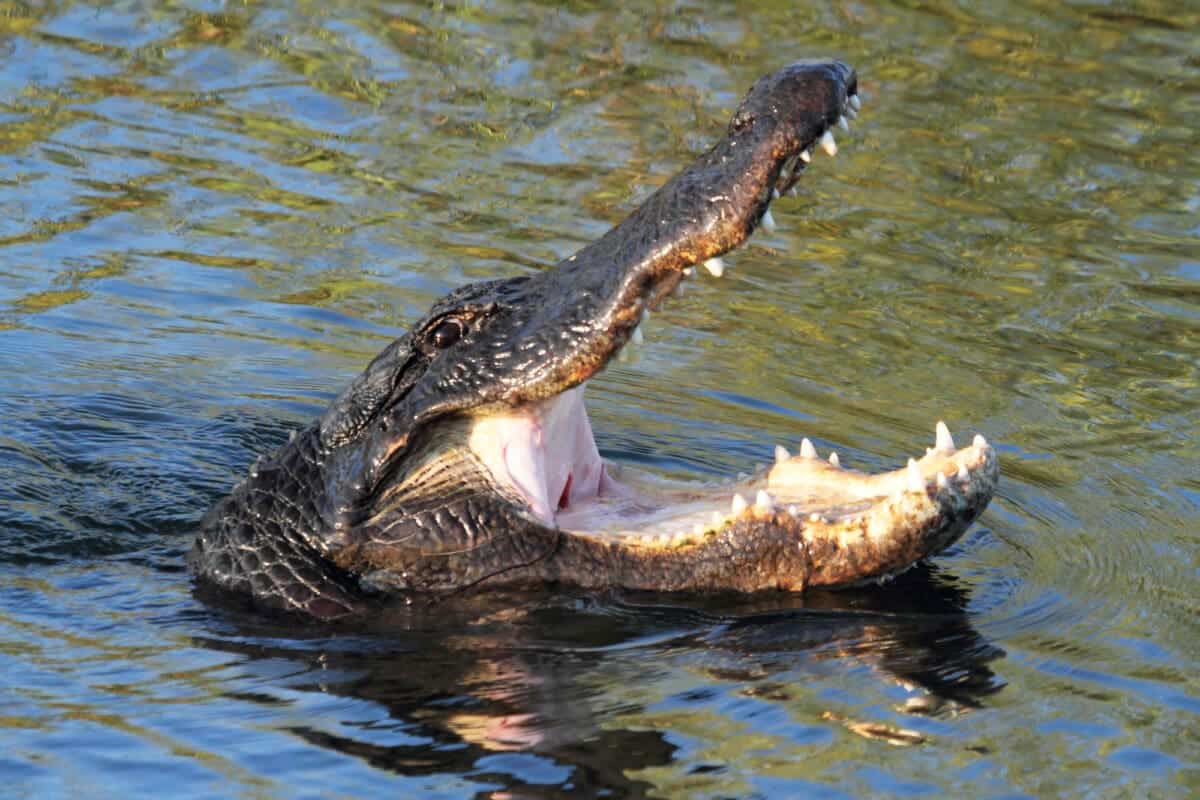
Alligators, like the one that attacked Rivera, are prevalent in Florida. These powerful creatures can grow up to 14 feet in length and can weigh up to 1,000 pounds. Encounters between humans and alligators in Florida are not unheard of, though fatal alligator attacks are rare.
The Florida Fish and Wildlife Conservation Commission (FWC) has been collecting data on alligator interactions since 1948. It’s estimated that there have been a total of 401 unprovoked alligator attacks in Florida as of 2021. Though these numbers may seem alarming, it’s critical to note that in the span of nearly seven decades. From 1948 to 2021, there have only been 25 recorded fatalities due to alligator attacks.
Despite these statistics, the frequency of alligator attacks in Florida seems to be on the rise. From 1948 to the mid-70s, there were less than 10 attacks per decade. However, this number has significantly, with a peak in the first decade of the 21st century. During this time the sunny state of Florida saw more than 100 reported attacks.
Some factors contributing to the increase of alligator attacks may include urban expansion into alligator habitats. However, the FWC continues to enforce regulations and educate the public to ensure safety and to mitigate these incidents.
Speaking of alligator attacks, read about a dog that miraculously gets saved from an alligator attack, or about a farmer’s encounter with one of these lethal creatures.
Safety-Tips: How To Avoid an Alligator Attack
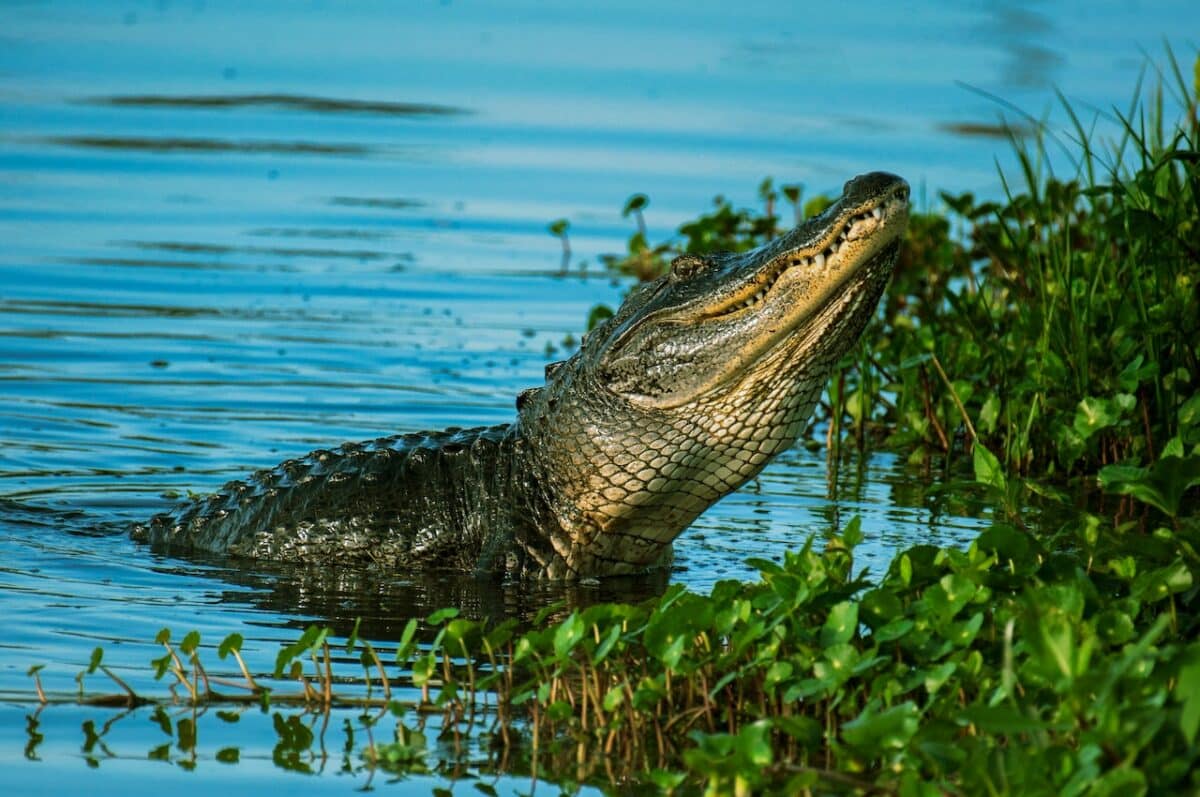
- Keep Your Distance: Alligators can be surprisingly fast over short distances,. Keep a safe distance – at least 15 to 20 feet away.
- Do Not Feed Alligators: Feeding alligators is not only dangerous, it’s also illegal in many places including Florida. Feeding alligators can make them associate humans with food, thereby increasing the risk of an attack.
- Avoid Swimming in Areas Known for Alligators: This especially includes swimming at night when alligators are most active.
- Be Extra Cautious Around Nesting Alligators: Female alligators are very protective of their nests and can become aggressive if they perceive a threat to their eggs.
- Keep Pets and Children Away: Alligators may see small animals and children as prey. Keep a close watch on them when near water bodies where alligators may be present.
And maybe, lastly but not least, learn from Rivera’s. Never take your business outside if a restroom-queue seems to daunting – waiting a few minutes is a fair price to pay as opposed to losing a limb.
Getting To Know the Alligator
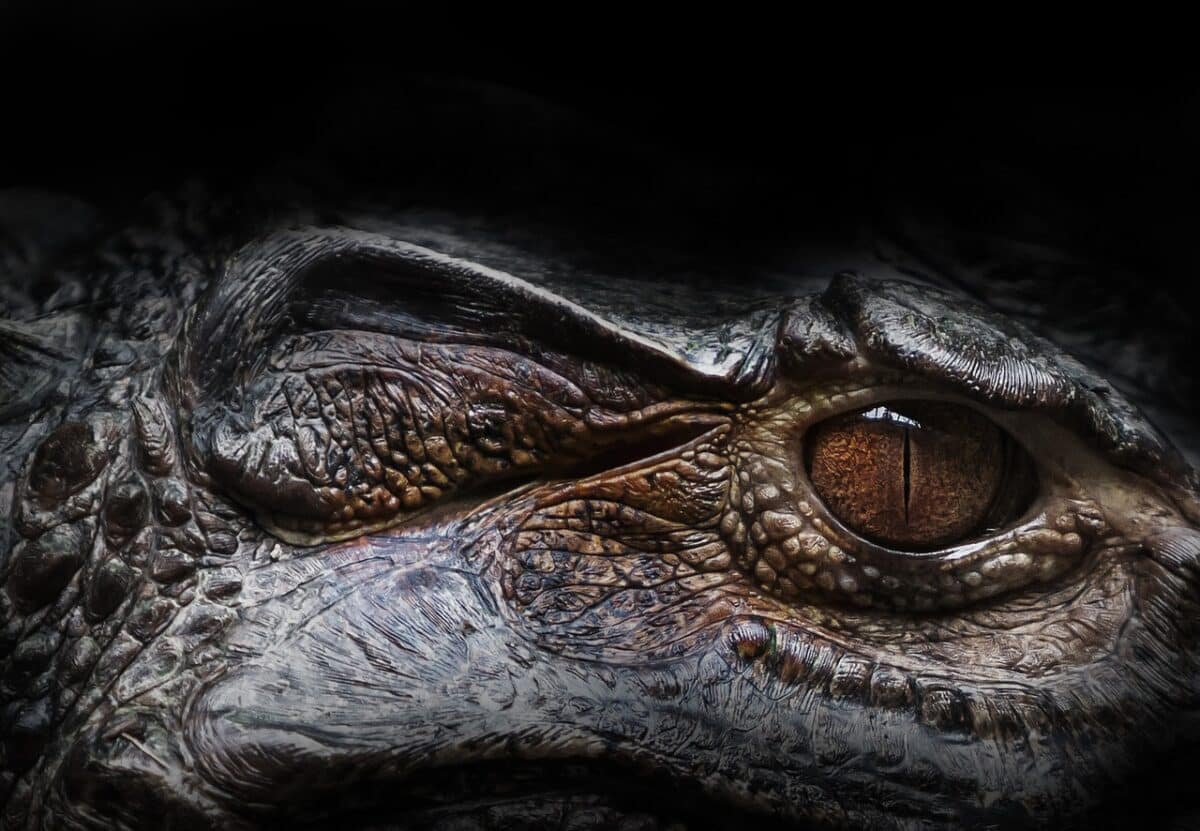
Alligators, specifically the American Alligator (Alligator mississippiensis), are truly fascinating creatures that play a vital role in their ecosystems. They are most prevalent in Florida, and their impressive physical traits command attention and respect.
Physical Traits
Known for their formidable size, adult male alligators typically range between 11 to 15 feet in length. However, they can sometimes grow even larger! The largest alligator ever recorded in Florida measured a staggering 17.4 feet. Females, on the other hand, are usually smaller, measuring around 8 to 9 feet on average.
The alligator’s body is armored with a thick, tough hide covered in bony plates called osteoderms or scutes. Their coloration ranges from dark green to black, which allows them to blend in with their surroundings. A prominent feature is their powerful, muscular tail, which aids in swimming and can be used as a defensive weapon. Equally impressive is their mouth, which boasts between 74 and 80 sharp teeth designed for seizing and holding prey.
Diet and Hunting Tactics
When it comes to diet, alligators are opportunistic predators. They primarily feed on a variety of fish, turtles, snakes, birds, and small mammals. Depending on their size and location, though, their diet may vary.
Larger alligators have been known to prey on larger mammals such as deer or wild boar. One of their unique hunting techniques is the “death roll,” where the alligator clamps onto its prey with its powerful jaws and then rolls its body repeatedly until the prey is weakened or killed.
Habitat
Alligators prefer freshwater environments, such as ponds, marshes, wetlands, rivers, and swamps. In Florida, they are particularly widespread in the Everglades, a vast and slow-moving river encompassing 1.5 million acres of wetland.
Alligators play a critical role in these ecosystems. Their ‘gator holes’, which are dug out depressions in the wetland, provide refuge for a variety of wildlife during dry periods. They are also key in keeping certain prey populations in check, contributing to the overall balance and health of their environments.
So despite the brutal alligator attacks that have been reported, it’s important to remember that these are vital and incredible animals that are worthy of our respect. After all, it’s us humans that are encroaching on their territory.
Wrapping Up
We can definitely learn something from this shocking tale of how a man loses his arm after an alligator attack while urinating outside. Jordan Rivera’s encounter with an alligator serves as a stark reminder of the unpredictable nature of wildlife, especially in a state like Florida where humans and alligators share common spaces.
Despite his horrific experience, Rivera’s optimistic spirit and the quick thinking of bystanders underline the triumph of human courage in the face of adversity. It’s an incident that underscores the necessity of remaining vigilant when navigating areas prone to alligator habitation, particularly at night.
While the frequency of alligator attacks in Florida is indeed on the rise, it’s important to note that these creatures are a vital part of the state’s rich biodiversity. Alligators continue to be a testament to nature’s amazing (and somewhat terrifying) creations that demand respect and caution in equal measure.
Thank you for reading this article! There are many more incidents that remind us that we need to show respect for mother nature and her creatures: read about a leopard that enter’s a luxury villa or a photographer that survives an attack by a bear.
- Chicago Cat Jumps From 5th Floor of Burning Building and Survives - April 22, 2024
- The Cruelest Contest in the World: Rattlesnake Round-Ups - April 21, 2024
- Rare Footage: Wild Fox and Pet Cat Play-Date - April 21, 2024

